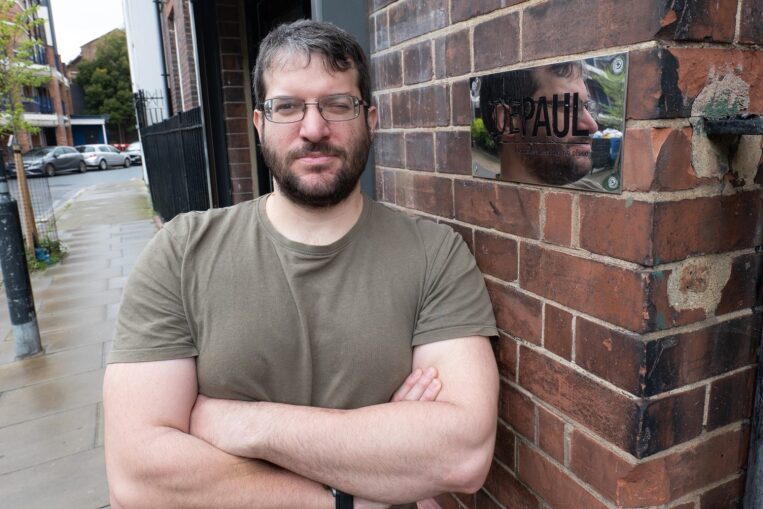
By Alex Szorad, Housing Officer, Depaul UK
Telling someone in one of the richest cities in Europe that I don’t have a bed for them tonight, I feel ashamed. It hurts me every time. I can offer them counselling, I can give them food or clothes, but not a roof over their heads, a safe place to sleep, that’s really tough. Turning people away, back onto the streets, it’s devastating.
When I first started as a housing officer at Depaul UK in 2020, the refugees I saw had been given three to four weeks to find alternative accommodation, nowhere near enough time even back then. Since the Home Office policy to fast-track a backlog of asylum cases started last year, many refugees are already sleeping out on the street when we meet.
When they arrive at my office, they are desperate, exhausted, and sometimes tearful, but they always have this hope. They think I’m going to fix their problems and find them somewhere safe to stay quickly. And, when the stars align and things go well, I do, that makes me feel great and keeps me going, but increasingly it’s harder to help.
Since the pandemic, the private rental market has become unaffordable, local authority budgets have dwindled to unsustainable levels, services are closing across the country, staff are overstretched and increasingly uncontactable. Homelessness has soared and supported accommodation is bulging at the seams. The crisis is exponential. It’s a perfect storm.
And the irony is that when refugees arrive in this country, they have so much hope. They have travelled so far, on dinghies, in lorries, through trafficking and slavery, and they believe they’ve ended their journey somewhere safe, somewhere they can start again. But Britain’s safety net is stretched to breaking point.
It’s difficult for any young person to navigate this broken system, let alone a refugee who does not speak English well. As a non-English speaking person at risk of homelessness, you are far less likely to reach support and far more likely to be declined services as the translation support required is just not available. It’s an awful situation and so frustrating to watch.
What makes me angry is that the Home Office does not prepare asylum seekers enough for the moment they get their refugee status. They don’t prepare them for the hoops they will need to jump through, in a language they don’t understand, to access funding and housing, to get a job, or to live in a new culture. They just open the doors and send them out onto the streets. It sometimes feels cruel and intentional. These are real human beings, and they are completely isolated.
The people I meet are the people who walk all night or sit in McDonald’s for hours, waiting for morning to come. One woman I met would ride a bicycle all night, just to keep moving, to keep safe. Can you imagine how exhausting that must be. They are always incredibly polite and courteous when we meet, it hurts me that we treat people like this.
What is needed now is for political leaders to urgently change the Home Office eviction period, bringing it in line with the 56 days introduced by the Homeless Reduction Act 2017 to find suitable accommodation and avoid sleeping on the streets. They must also start preparing asylum seekers for their new life in the UK before and not after they get their refugee status. This will have the added benefit of freeing-up valuable time and space in homelessness services across the country.
Sometimes I do have bouts of despair. But when it’s really bad, I try to imagine the many people I have helped, the people who were homeless but now have a home. I imagine I am a bird looking down and I see a small village of people living their lives, and that’s how I try and motivate myself.